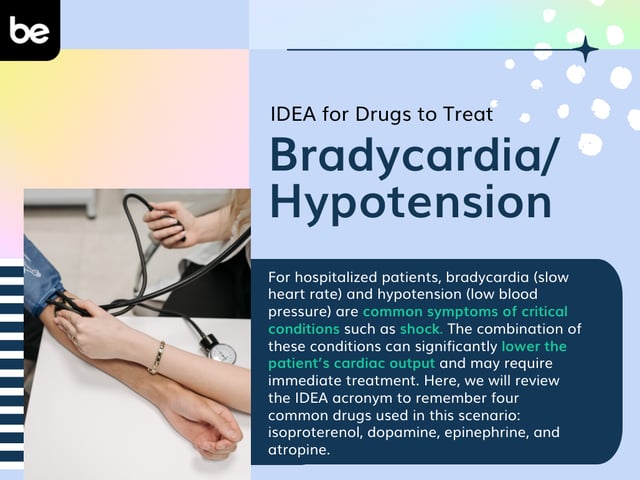
What to Expect in Nursing School Clinicals
The clinical experience is a rite of passage for all nursing students, a phase that marks your transformation from a novice to a proficient provider of care. It’s during these clinicals that you will begin to fully grasp the depth of nursing practice and the profound impact nurses have on patients’ lives. So, strap in and get ready for an incredible journey – a journey that takes you to the heart of nursing!
The Purpose and Structure of Clinicals
As you venture into the world of nursing school clinicals, it’s crucial to understand the basic framework of your learning journey. This includes comprehending the purpose of clinicals and their typical structure.
The Purpose of Clinicals: Building Skills and Fostering Personal Growth
Technical Skills
The purpose of clinical rotations goes far beyond textbook learning. They act as a stage where you transition from theoretical knowledge to practical application. You’ll be exposed to a range of specialties within nursing, allowing you to grasp the vast scope of this field.
One of the main aims of clinicals is to build your hands-on technical skills. These skills may include:
-
Administering medication: You will learn about different types of drugs, their uses, side effects, and how to administer them safely to patients.
-
Wound care: You’ll learn how to dress wounds, monitor for signs of infection, and promote healing.
-
Inserting IV lines: This is a common nursing task where you’ll learn the correct techniques for IV insertion and how to maintain IV sites.
These are just a few examples of the many technical skills you’ll acquire during your clinical rotations. The more hands-on practice you get, the more competent you will become, preparing you for the realities of nursing practice.
Soft Skills
Equally important are the ‘soft’ skills you’ll develop. These are often underrated but play a significant role in successful patient care. They include:
-
Communication: The ability to communicate effectively with patients, their families, and the healthcare team is crucial. You’ll learn to relay critical information, provide emotional support, and educate patients about their health.
-
Problem-solving: In the dynamic environment of healthcare, unexpected issues often arise. Clinicals help you develop problem-solving skills to navigate these challenges.
-
Teamwork: Working in healthcare is a team effort. During clinical rotations, you’ll learn to work and collaborate with a diverse team of healthcare professionals.
-
Empathy: One of the cornerstones of nursing is empathy. Through direct patient care, you’ll cultivate a deeper understanding and empathy for the experiences of patients.
The Structure of Clinicals: Preparation, Supervision, and Evaluation
Understanding the structure of clinicals can help you navigate them more effectively. The typical structure of clinical rotations includes preparation, supervision, and evaluation phases.
Preparation Phase
Before you dive into direct patient care, there is a preparation phase. You’ll likely be given an overview of the procedures, protocols, and skills you’ll be learning and implementing. This is a crucial time to absorb as much information as you can and ask questions.
Supervision Phase
You won’t be thrown into the deep end alone. During clinicals, you’ll be supervised by experienced nurses or nurse educators. They’re there to guide you, provide real-time feedback, and support your learning journey. It’s important to utilize their expertise and be open to their guidance.
Evaluation Phase
Regular evaluations are an integral part of clinicals. These assessments are based on your performance, your interactions with patients, and your ability to work within the healthcare team. Evaluations are not just about pointing out areas of improvement, but they also highlight your strengths and help reinforce positive practices.

What to Expect in Different Clinical Rotations
Clinical rotations are a fundamental part of your nursing education, providing a real-world context where you can apply your academic knowledge. While each nursing school might have a different clinical schedule and focus, most programs cover core areas of nursing practice. Let’s delve into these specialties and understand what you might expect during each rotation:
Medical-Surgical Nursing: Building Foundations of Patient Care
Medical-surgical nursing forms the cornerstone of nursing practice. Here, you’ll engage with a diverse patient population, primarily adults, undergoing various surgical procedures. In this rotation, expect to:
-
Work with patients recovering from surgeries: This might include providing post-operative care, monitoring vital signs, managing pain, and watching for signs of complications.
-
Assist in wound care: You will learn about different types of wounds, wound healing stages, and proper wound care techniques, such as dressing changes.
-
Develop a care plan for patients: Based on each patient’s condition, recovery progress, and individual needs, you will learn to formulate and implement care plans, a critical aspect of nursing practice.
Pediatric Nursing: Caring for Children and Their Families
Working with children is quite different from caring for adult patients. In this rotation, you’ll not only learn about the specific healthcare needs of children but also about communicating effectively with both the children and their families.
In your pediatric rotation, you might:
-
Assess growth and development stages: You’ll learn how to evaluate a child’s physical and developmental progress and identify any anomalies that may require intervention.
-
Administer immunizations: Immunizations are a crucial part of pediatric care. You’ll learn about the pediatric immunization schedule, administration techniques, and how to address parental concerns.
-
Communicate effectively with children and their families: You’ll develop communication strategies that suit a child’s level of understanding. This rotation will also help you learn how to involve parents in their child’s care and how to handle sensitive discussions.
Obstetric and Gynecologic Nursing: Focusing on Women’s Health
This rotation focuses on the broad scope of women’s health, from gynecological care to pregnancy and childbirth. You will likely assist in antenatal clinics, labor and delivery suites, postnatal wards, and neonatal units. In your obstetric and gynecologic rotation, you may be expected to:
-
Assist in labor and delivery: You’ll observe and assist in the childbirth process, learning about the stages of labor, pain management techniques, and potential complications.
-
Provide prenatal and postnatal care: You’ll learn to provide care for pregnant women before and after delivery. This includes monitoring the health of the mother and baby, teaching about breastfeeding and newborn care, and supporting women in the postpartum period.
-
Monitor the health of the newborn: You will gain an understanding of newborn assessment and care, recognizing signs of common neonatal conditions and providing interventions as necessary.
Remember, each clinical rotation provides unique learning opportunities. Embrace each experience with an open mind and a willingness to learn, and you’ll build a strong foundation for a successful nursing career.
Making the Most of Your Clinical Experience: Key Strategies
The journey through nursing school clinicals is an exciting one, packed with learning opportunities and valuable experiences. However, it can also be challenging. To help you navigate this crucial phase of your nursing education, here are some strategies that can enhance your clinical experience and help you thrive:
Come Prepared: Knowledge is Power
Before starting a rotation, familiarize yourself with the protocols, common procedures, and practices of the unit you’ll be working in. This includes understanding the type of patients you’ll encounter, common diseases or conditions, and relevant nursing care techniques.
Preparation can also involve reviewing your coursework that relates to the rotation, going through clinical guidelines, and researching recent advancements in that field. The more prepared you are, the more confident and competent you’ll feel. Resources such as the National Institute of Health can be a gold mine of reliable information.
Stay Organized: Mastering the Balancing Act
Being organized is essential in nursing. You’ll need to manage your time well to balance clinical hours, coursework, study time, and personal life. Invest in a good planner, develop a schedule, and stick to it. Remember to set aside time for unexpected tasks and breaks to relax and rejuvenate.
When you’re in the clinical setting, staying organized can mean efficiently managing your tasks, keeping track of patient information, and ensuring that you meet all your responsibilities. Tools like clinical notebooks and apps can be helpful.
Embrace Feedback: The Pathway to Improvement
Feedback, especially constructive criticism, is a vital part of the learning process. It helps identify your strengths and areas that need improvement. Embrace feedback from your instructors, mentors, and peers. Reflect on it, learn from it, and continuously strive to improve.
Remember, nobody is perfect. It’s okay to make mistakes, as long as you learn from them and do not repeat them. Clinical rotations are a safe space for learning and growth, so don’t be afraid of feedback.
Practice Self-Care: Taking Care of Your Health
Nursing can be demanding, both physically and mentally. Long hours, challenging situations, and emotional interactions can take a toll on your health. Therefore, practicing self-care is of utmost importance.
This means eating a balanced diet, getting regular exercise, ensuring you get enough sleep, and making time for relaxation and leisure activities. If you’re feeling stressed or overwhelmed, reach out to your instructors, classmates, or a counselor. Remember, it’s okay to ask for help.
Up Next: The NCLEX
After navigating the intense learning journey of nursing school and gaining invaluable experience through your clinical rotations, you’ll be stepping closer to your ultimate goal: becoming a registered nurse. The final hurdle you’ll face on this path is passing the NCLEX-RN, the national licensing examination for registered nurses.
Studying for the NCLEX-RN may feel like a daunting task, given its comprehensive nature. However, rest assured that your clinical experiences have already equipped you with much of the practical knowledge needed for the exam. In fact, every clinical rotation you’ve undertaken has been slowly but surely preparing you for this test.
To complement this practical knowledge, consider using a mix of study tools that cater to different learning styles. These may include:
-
Practice tests: Regularly taking practice tests can help familiarize you with the format of the NCLEX-RN and boost your confidence.
-
Study guides: Comprehensive study guides offer in-depth reviews of the content covered in the exam.
-
Flashcards: Flashcards can aid in memorizing and reviewing key concepts, drugs, conditions, and procedures.
-
In-person NCLEX-RN courses: For those who prefer structured learning environments, in-person courses provide an opportunity to directly interact with experienced instructors and peers. You’ll benefit from structured lessons, immediate feedback, and the chance to participate in group studies.
Remember, studying for the NCLEX-RN isn’t just about memorization. It’s about understanding concepts, applying critical thinking, and integrating all that you’ve learned in your coursework and during clinicals.
As you move forward on your journey, remember the experiences you’ve had and the skills you’ve acquired in your clinical rotations. These real-world experiences have already started shaping you into the competent, compassionate, and skilled nurse you aspire to be. Carry these lessons with you as you prepare for the NCLEX-RN and beyond, into your thriving career as a registered nurse. Best of luck!
Keep Reading

National Council Licensure Examination-Registered Nurse Blog
What is the NCLEX Next Generation (NGN) Exam?
If you’re interested in becoming a registered nurse, you likely know th…

National Council Licensure Examination-Registered Nurse Blog
IDEA for Drugs to Treat Bradycardia/Hypotension
For hospitalized patients, bradycardia (slow heart rate) and hypotensio…

National Council Licensure Examination-Registered Nurse Blog
SAMS for Lidocaine Toxicity
Lidocaine is a commonly used local anesthetic drug and can be used for …